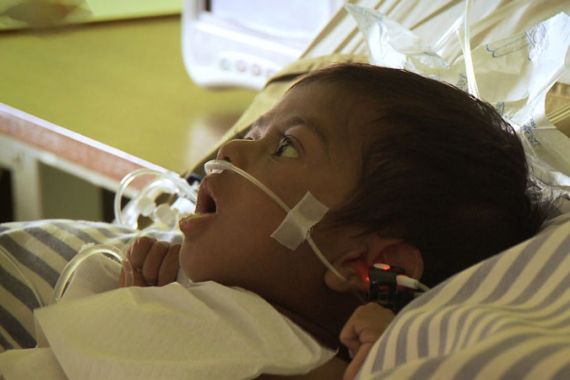
Patient: Baby Hatesham
Despite family opposition, the baby’s parents opt for a risky liver transplant procedure they hope will save his life.
Akbar and Qurr Ali are typical of India’s new working class. Akbar is a machinery salesman and his wife Qurr works in a small business.
Each month they bring home the equivalent of $200, which is just enough to live on but leaves no room for luxuries let alone medical emergencies.
They have a beloved first child, nine-month-old Hatesham, but he is seriously ill with a diseased liver and will die without a transplant.
In India, transplants, particularly pediatric transplants of this complexity, are rarely performed and cost an enormous amount – well beyond the means of this family.
And to complicate matters further, any transplant must come from a living donor – which means a member of the family must donate part of their liver.
Like any mother, Qurr is determined to do all she can for her son despite opposition from her immediate family. Her parents have said they should not spend any money on treating the child, and instead just have another baby.
This is not an uncommon attitude in India where paying for treatment of a serious illness can affect a family’s fortunes for years.
Determined to pursue the possibility of a transplant, the family has two pieces of luck.
One of India’s few pediatric liver transplant surgeons, Dr. Ashley D’Cruz, is working at the the Narayana Hrudayalaya hospital 25kms away across town and Qurr discovers she is eligible for insurance through her work.
Akbar is found to be a suitable donor and the decision is made to go ahead with the very risky operation. But the stakes are high for baby Hatesham and his parents.